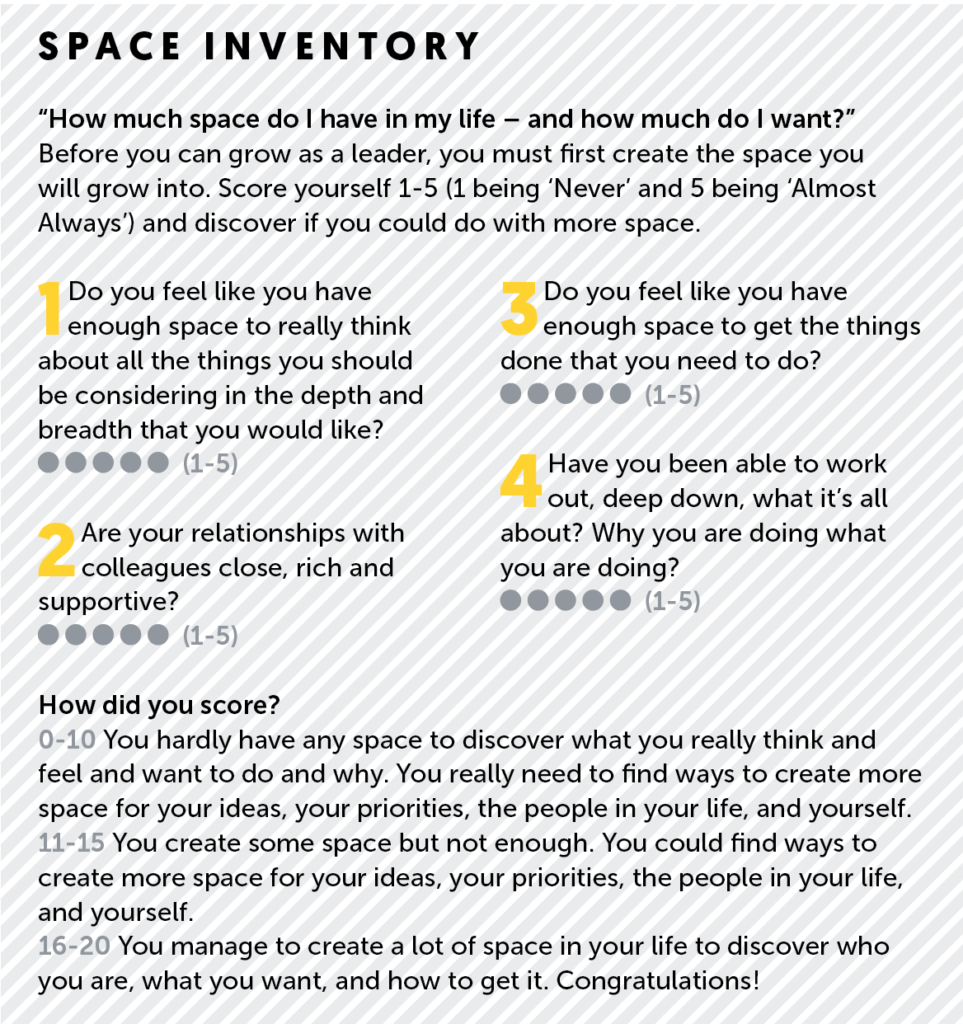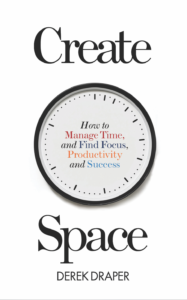Equip yourself with the tools to create ‘space’, writes Kirsten Levermore
Boarding a flight a few weeks ago, a snippet of conversation between two business travellers caught my attention. “Brainstorming in the bathroom stall had to be the low point of that quarter,” said one. “I can’t wait to get on the plane and have some peace and quiet.”
“Good luck with that,” their companion laughed. “I hear it has wifi now.”
It’s the sort of ‘progress’ that prompts mixed feelings. It is often a real struggle to find the peace and quiet – the time and the space – that we want. In an always-on world, it’s harder to escape the hurly-burly of our day-to-day working lives. “We have become the first generation in one thousand generations of human beings who, rather than having the need to fill space, have the need to create it,” writes business psychologist Derek Draper in Create Space: How to Manage Time and Find Focus, Productivity and Stress, a recent Financial Times Business Book of the Month.
Many jobs require deep thinking, ideation, planning and creativity, he notes, but most of us are drowning in noise, information and too much to do. The solution does not necessarily include a locked bathroom stall.
“Modern life, particularly work, fills any space indiscriminately… A leader must therefore consciously push back and create space.”
A clear how-to guidebook
Create Space features an extensive review of leadership literature. Draper builds on French philosopher Henri Lefebvre’s belief that true space is made up of physical, mental and social states, and lays out four ‘dimensions’ of space that require our attention:
- Space to think – we have the intellectual freedom to think deeply
- Space to connect – we attain the emotional capacity to share and engage with others
- Space to do – we are able to prioritize and generate productive impact
- Space to be – to ensure that we build the life we truly want
Addressing each dimension in turn with simple illustrative case studies, easily grasped theoretical models and tools and tips that can be implemented from the get-go, Draper’s book aims to equip the reader to “embrace space” for the long-run.
For those who achieve it, far-reaching benefits are ripe for the taking: “Space is vital for deeper self-insight and sense of purpose, better strategic and creative thinking, richer relationships and delivering what really matters.”
In this book, Draper reminds us that balance, direction, decision-making, planning, learning, and growth all require pure, unadulterated space.

Your core pathogenic belief
Merely scratching the surface of why your time, mind and life are so full of noise will not cut it. Draper suggests that many people’s space becomes crowded because of their own actions. Typically, that is driven by a deeply-embedded idea each individual holds about themselves, described as a “core pathogenic belief” (CPB); often developed as early as childhood, and “almost always entirely false”. Creating space means offloading the CPB baggage that is crowding our work and personal life.
It’s something of a deep dive into psychology, but as a ground-level principle of Create Space, it’s essential. Without it, readers would be hard pushed to properly integrate Draper’s insights in their lives in meaningful ways.
You’ll need to create space to read this one
With 300 pages and 12 subsections, Create Space is a lot to take in. The author himself points out that the book is best treated as a workshop handbook to be used over several weeks or months, providing the reader with space to devote sufficient attention, to absorb the ideas on each page, and to practise each technique.
This weighty presentation will likely put a lot of leaders off, but persevere. There are some fantastic ideas contained within the book’s pages, with significant research to back it up. Plus, with Draper’s natural flair and character jumping from each page, you’ll quickly feel like you have your own personal coach. This is a book well worth making space for.


